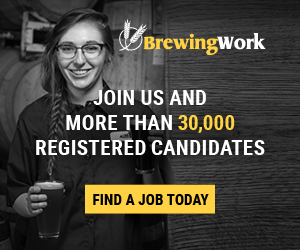Use Your Previous Experience To Jump-Start Your Brewing Industry Career
While it’s more common now than ever for brewing to be a dream job for people barely old enough to drink, there are still countless more ready to swap their previous job for a career in the industry. We’ve heard from newcomers to the industry who feel self-conscious of their age, or their years of experience elsewhere, but the good news is that skills learned in a previous career can be an asset in brewing as well.
If you’re a second-career brewer, follow these tips to put your knowledge to good use and learn how to present yourself best during your job search.
Interrogate your skills
When job-hunting, or after years in an industry (even once you leave), it’s easy to think of skills in either ultra-specific terms or cliches. In order to make the most of your previous experience, you have to leave all of that behind. Dive into the details of what you did: were you part of a team with many moving parts, knowing how to keep abreast of other people while still focusing on your own role? Were you thinking creatively alone or as part of a group? What did it take to keep up with changes in your former industry?
If you never felt as though your previous career was a good fit, you might find that you have a tendency to cut yourself down when thinking about your time there. However, even if you never had a chance to really thrive or never felt like you were good enough, you still had successes and still learned skills.
Having someone else to talk to through this interrogation process can help you avoid putting yourself down, particularly if they’re a former coworker or someone who was or is in the industry in question.
Direct connections
Some things you learned in your previous career may have a direct correlation to work done in the brewing industry. This is particularly true if you were in the sciences or marketing, as a successful brewery knows how to market their science experiments, but no matter your previous role it’s still possible there are specific skills you will be able to slot into a new job with no hesitation.
Depending on your familiarity with the brewing industry, it may be worth seeking out someone with brewing experience to talk to. Explain your previous role: your responsibilities both on paper and in practice, what your areas of interest were, and even who you worked with inside and outside of your former company. Ask them about what parts of your previous job would suit the needs of a brewery.
Brewing is a complex industry, and it’s not uncommon for a brewery to prize an employee who can, for instance, easily translate legalese, or who knows the ins and outs of real estate.
Polish your resume
If you’ve followed the previous two steps, this stage will be much easier! Knowing yourself and knowing the industry you’re looking to be hired in are both critical in crafting a winning resume.
First, study the job description for both the job in question and other, similar job listings. Make a list of the responsibilities you feel confident in being able to do well — do they have any similarities to things you did in your previous career. If so, make a note of those similarities and be sure to highlight them.
Now, do the same for aspects you’re less confident about. Research these online, looking for things which might tie in to your previous experience. You may not choose to highlight these, but the process will steady your nerves and may be useful to talk about in an interview.
In writing your resume, you may want to use what is called the functional or skills-based format. When using this format, you have a list of skills at the top and a brief chronological work history with few or no other details further down. This allows you to place the focus on what you can bring to the table rather than a work history which may mean little to your future employer. However, if you choose to use this format your cover letter or introduction will be more important, so remember to write engagingly and explain where you’re coming from.
There are few people who haven’t struggled to find a place for “unrelated” experience in their resume, so there’s no need to feel embarrassed when submitting a resume full of your previous life. The important thing is knowing how to present yourself.
|


